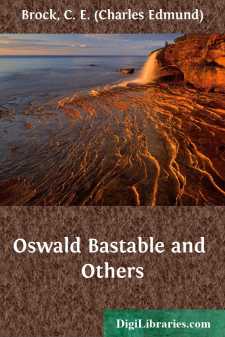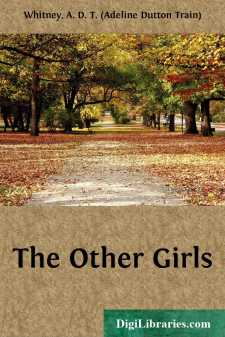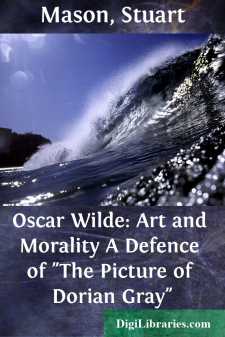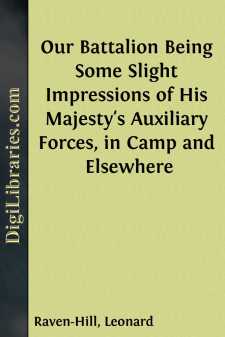Categories
- Antiques & Collectibles 13
- Architecture 36
- Art 48
- Bibles 22
- Biography & Autobiography 813
- Body, Mind & Spirit 142
- Business & Economics 28
- Children's Books 13
- Children's Fiction 10
- Computers 4
- Cooking 94
- Crafts & Hobbies 4
- Drama 346
- Education 46
- Family & Relationships 57
- Fiction 11828
- Games 19
- Gardening 17
- Health & Fitness 34
- History 1377
- House & Home 1
- Humor 147
- Juvenile Fiction 1873
- Juvenile Nonfiction 202
- Language Arts & Disciplines 88
- Law 16
- Literary Collections 686
- Literary Criticism 179
- Mathematics 13
- Medical 41
- Music 40
- Nature 179
- Non-Classifiable 1768
- Performing Arts 7
- Periodicals 1453
- Philosophy 64
- Photography 2
- Poetry 896
- Political Science 203
- Psychology 42
- Reference 154
- Religion 513
- Science 126
- Self-Help 84
- Social Science 81
- Sports & Recreation 34
- Study Aids 3
- Technology & Engineering 59
- Transportation 23
- Travel 463
- True Crime 29
Sort by:
CHAPTER I "Quod felix faustumque sit!" There is a happiness which no poet has yet properly sung, which no lady-reader, let her be ever so amiable, has experienced or ever will experience in this world. This is a condition of happiness which alone belongs to the male sex, and even then alone to the elect. It is a moment of life which seizes upon our feelings, our minds, our whole being. Tears...
more...
AN OBJECT OF VALUE AND VIRTUE This happened a very little time after we left our humble home in Lewisham, and went to live at the Blackheath house of our Indian uncle, which was replete with every modern convenience, and had a big garden and a great many greenhouses. We had had a lot of jolly Christmas presents, and one of them was Dicky's from father, and it was a printing-press. Not one of the...
more...
CHAPTER I. SPILLED OUT. Sylvie Argenter was driving about in her mother's little basket-phæton. There was a story about this little basket-phæton, a story, and a bit of domestic diplomacy. The story would branch away, back and forward; which I cannot, right here in this first page, let it do. It would tell—taking the little carriage for a text and key—ever so much about aims and ways and...
more...
by:
Stuart Mason
ART AND MORALITY "Why do you always write poetry? Why do you not write prose? Prose is so much more difficult." These were the words of Walter Pater to Oscar Wilde on the occasion of their first meeting during the latter's undergraduate days at Oxford. Those were "days of lyrical ardours and of studious sonnet-writing," wrote Wilde, in reviewing one of Pater's books some years...
more...
by:
Jeffery Farnol
CHAPTER I CONCERNING THE MAJOR'S CHERRIES "The Major, mam, the Major has a truly wonderful 'ead!" said Sergeant Zebedee Tring as he stood, hammer in hand, very neat and precise from broad shoe-buckles to smart curled wig that offset his square, bronzed face. "Head, Sergeant, head!" retorted pretty, dimpled Mrs. Agatha, nodding at the Sergeant's broad back. "'Ead...
more...
by:
Emily Hickey
The beginnings of Literature in England. Two poets of the best period of our old poetry, Caedmon and Cynewulf. The language they wrote in. The monastery at Whitby. The story of Caedmon's gift of song.How many of us I wonder, realise in anything like its full extent the beauty and the glory of our Catholic heritage. Do we think how the Great Mother, the keeper of truth, the guardian of beauty, the...
more...
CHAPTER I. It was extremely tiresome! It was vexatious; it was altogether annoying! Most people under similar circumstances would have used stronger expressions, would have bemoaned themselves loudly, or at least inwardly, with all the pathos of self-pity. To be nearly at the end of one’s journey, almost within sight and sound of home fires and home welcomes, and then to be snowed up, walled,...
more...
The boy hesitated as he looked down the wet street of the little country town. "I've 'arf a mind not to go," he said, "blessed if I ain't——;" then, after a pause, with hands in pockets and coat collar turned up, he lounged off, muttering, "I'll see what Bill ses." Bill was waiting at the corner, looking somewhat sheepishly at the miscellaneous display in...
more...
by:
Edmund S. Lorenz
THE OTTERBEIN HYMNAL. 1 Gloria Patri. Glory be to the Father, and to the Son, and to the Holy Ghost, and to the Holy Ghost, As it was in the beginning, is now, and ever shall be, world without end, world without end. Amen. Glory be to the Father, and to the Son, and to the Holy Ghost, As it was in the beginning, is now, and ever shall be, world without end. Amen. 3 Old Hundred. L.M. (1) Psalm 100....
more...
by:
T. S. Brown
PREFACE. The Indians of Caughnawaga are an offshoot from the Mohawks, one of the divisions of the Six Nations, formerly in pseudo occupation of western New York, and known to the French by the general name of Iroquois. Long before the cession of this Province to Great Britain, they were settled at the head of the rapids of the St. Lawrence opposite Lachine, on a tract of land ten miles square, or...
more...











